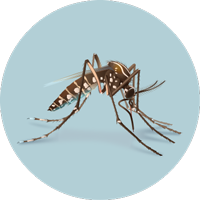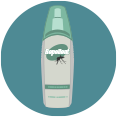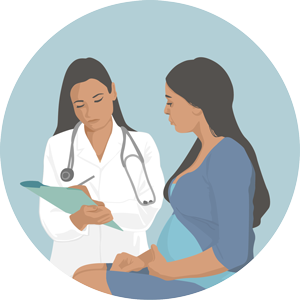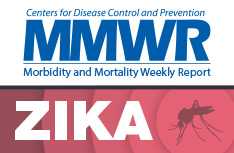Zika is in Your Area: What To Do
Key Facts
- Zika virus is primarily spread to people through the bite of an infected mosquito.
- Many people who get infected never have symptoms. In people who get sick, symptoms (fever, rash, joint pain, and red eyes) are usually mild and last several days to a week.
- Zika can cause serious birth defects in babies born to women who were infected with Zika virus during pregnancy.
- Research suggests that Zika is strongly associated with Guillain-Barré syndrome (GBS), a rare disorder that can cause muscle weakness and sometimes paralysis.
- Zika can be passed through sex from a person who has Zika to his or her sex partners. Zika can be passed through sex, even if the infected person does not have symptoms at the time.
- Because there is no vaccine or treatment for Zika, people living in or traveling to areas with risk of Zika should take steps to prevent infection.

Prevent mosquito bites
Everyone living in or traveling to areas with risk of Zika should take steps to prevent mosquito bites

- Cover exposed skin by wearing long-sleeved shirts and long pants.
- Use EPA-registered insect repellents that contain one of the following active ingredients: DEET, picaridin, IR3535, oil of lemon eucalyptus, para-menthane-diol, or 2-undecanone. Always use as directed.
- Pregnant and breastfeeding women can use all EPA-registered insect repellents according to the product label. Do not use insect repellent on babies younger than 2 months old. Mosquito netting can be used to cover babies under 2 months in carriers, strollers, or cribs to protect them from mosquito bites.
- Do not use products containing oil of lemon eucalyptus or para-menthane-diol on children under 3 years old.
- Adults: spray insect repellent onto your hands and then apply to a child’s face.

- Use permethrin-treated clothing and gear (boots, pants, socks, tents). You can buy pre-treated items or treat them yourself.
- Stay in places with air conditioning and window and door screens.
- Sleep under a mosquito bed net if air conditioned or screened rooms are not available or if sleeping outdoors.
- Take steps to control mosquitoes in and around your home.
Prevent spread through sex

Condoms can reduce the chance of getting Zika from sex. To be effective, condoms should be used from start to finish, every time during vaginal, anal, and oral sex and the sharing of sex toys. Zika can be passed from a person with Zika before their symptoms start, while they have symptoms, and after their symptoms end.
- Pregnant couples in which one or both partners live in or have traveled to an area with risk of Zika should use condoms or not have sex during the pregnancy. This is important, even if they do not have symptoms of Zika or feel sick.
- Anyone living in an area with risk of Zika who is concerned about sexual transmission can use condoms or not have sex.
- Anyone who is not pregnant or trying to get pregnant who wants to avoid getting or passing Zika during sex can use condoms every time they have sex, or not have sex. The recommended period of time for taking these precautions will depend on the person’s or couple’s situation.
Pregnant women: Get tested for Zika

- All pregnant women in the United States should be assessed for possible Zika virus exposure at each prenatal care visit.
- Pregnant women who traveled to an area with risk of Zika that has a CDC Zika travel notice should be tested for Zika even if they do not have symptoms.
- Pregnant women who traveled to an area with risk of Zika that doesn’t have a CDC Zika travel notice should be tested if they develop symptoms of Zika or if their fetus has abnormalities on an ultrasound that may be related to Zika infection.
- Pregnant women who live in an area with a Zika travel notice are at risk of getting Zika throughout pregnancy. For this reason, they should be offered testing at the first prenatal care visit and a second test in the second trimester.
Discuss pregnancy planning with your healthcare provider

- Men and women who are considering pregnancy and who live in areas with risk of Zika should talk with their healthcare providers about their pregnancy plans during a Zika virus outbreak, the potential risks of Zika, and how they can prevent Zika virus infection during pregnancy.
- As part of counseling with healthcare providers, some women and their partners living in areas with risk of Zika might decide to delay pregnancy.
- See the recommended timeframes to wait before trying to get pregnant, based on exposure and symptoms.
If you get sick
If you feel sick and think you may have Zika

- Talk to your doctor if you develop symptoms of Zika (fever, rash, joint pain, or red eyes).
- Take acetaminophen (Tylenol®) to relieve fever and pain. Do not take aspirin or other nonsteroidal anti-inflammatory drugs, such as ibuprofen, until dengue can be ruled out.
- Get lots of rest and drink plenty of liquids.
During approximately the first week of infection, Zika virus can generally be found in the blood and can pass from an infected person to a mosquito through mosquito bites. An infected mosquito can then spread the virus to other people.
To help prevent others from getting sick, strictly follow steps to prevent mosquito bites during the first week of illness.
- Page last reviewed: April 5, 2017
- Page last updated: April 5, 2017
- Content source:





 ShareCompartir
ShareCompartir